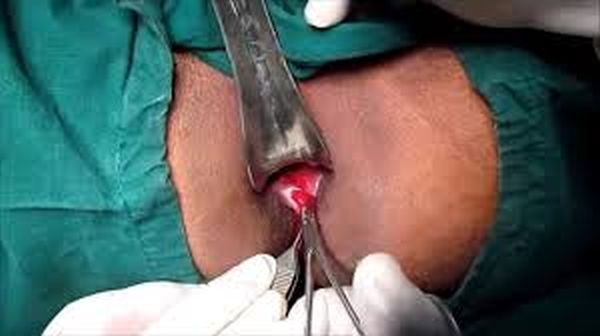Fissure Surgery: A Long-Term Solution for Chronic Pain Relief

Understanding Fissure Surgery and Its Benefits
An anal fissure is a tear or crack in the skin around the anus, often causing severe pain, especially during or after bowel movements. While many fissures heal with conservative treatments, some may become chronic and require surgery. Fissure surgery is an effective option to treat severe or recurrent fissures and provide lasting relief from pain and discomfort.
1. When Is Fissure Surgery Necessary?
Fissure surgery becomes necessary when conservative treatments, such as creams, warm baths, and dietary changes, fail to provide relief. If a fissure persists for several weeks or keeps coming back, it can cause complications like:
- Chronic pain and discomfort
- Fistula formation (an abnormal connection between the fissure and the skin)
- Severe bleeding or infection
In these cases, fissure surgery is recommended to permanently resolve the issue and promote healing.
2. Types of Fissure Surgery
There are a few different surgical approaches to treat anal fissures, depending on the severity of the condition:
- Lateral Internal Sphincterotomy (LIS): This is the most common surgical procedure for chronic fissures. It involves making a small incision in the internal anal sphincter muscle to relieve pressure and improve blood flow to the area, allowing the fissure to heal naturally. This procedure is usually done under local anesthesia.
- Fissurectomy: In this procedure, the fissure tissue is removed along with any scar tissue to promote healing. This may be recommended if the fissure is very deep or has become infected.
- Botox Injections: In cases where surgery may be too invasive, Botox injections can be used to temporarily relax the anal sphincter, promoting healing without the need for a more invasive procedure. It is often used for less severe fissures.
3. Benefits of Fissure Surgery
Fissure surgery offers several benefits, particularly for patients with chronic fissures or recurring symptoms:
- Permanent Relief from Pain: Surgery effectively eliminates the pain caused by chronic fissures, allowing patients to lead a normal, pain-free life.
- Prevents Complications: Surgery prevents the development of further complications such as fistulas or infection, which can make the condition more serious.
- Improved Quality of Life: With the fissure healed, patients can return to their normal routines without worrying about ongoing discomfort or painful bowel movements.
4. What to Expect During Fissure Surgery
Fissure surgery is typically a quick and straightforward procedure, and most patients are able to go home the same day. Here’s what you can expect during the process:
- Pre-Surgery Consultation: Before surgery, you’ll have a consultation with your surgeon to discuss your symptoms and determine if surgery is the best option. You may undergo tests like an anal examination or MRI.
- Anesthesia: Fissure surgery is typically performed under local or general anesthesia, depending on the procedure and your comfort level.
- The Procedure: The surgeon will perform the procedure to address the fissure. Most procedures last around 20-30 minutes.
- Post-Surgery Care: After surgery, you will be given aftercare instructions to promote healing and prevent complications. This may include warm baths, stool softeners, and avoiding straining during bowel movements.
5. Recovery After Fissure Surgery
While recovery from fissure surgery is relatively quick, it’s important to follow your doctor’s instructions for the best outcome. Here’s what to expect:
- Initial Recovery: You may experience some mild discomfort or swelling in the first few days after surgery. This can usually be managed with over-the-counter pain relievers and warm baths.
- Resuming Normal Activities: Most patients can resume normal activities within 1-2 weeks, though strenuous activities or heavy lifting should be avoided for at least a month.
- Full Healing: Complete healing can take a few weeks to a few months, depending on the severity of the fissure and the type of surgery performed. It’s important to maintain a high-fiber diet and drink plenty of fluids to prevent constipation and promote healing.
6. Potential Risks of Fissure Surgery
While fissure surgery is generally safe and effective, as with any procedure, there are potential risks. These include:
- Infection or bleeding: These are rare but can occur in the days following surgery.
- Incontinence: In some cases, cutting the anal sphincter muscle can lead to temporary or permanent incontinence, though this is uncommon with modern surgical techniques.
- Recurrence: While surgery is highly effective, there is a small chance that a fissure may return, especially if post-surgery care isn’t followed correctly.
7. Why Choose Dr. Ankur Bhanushali for Fissure Surgery?
If you are considering fissure surgery, Dr. Ankur Bhanushali is a highly skilled and experienced surgeon specializing in laser and laparoscopic surgeries for various anal conditions, including fissures. His approach focuses on personalized care, ensuring that you receive the most effective treatment for your condition.
Dr. Bhanushali uses advanced techniques to minimize discomfort and promote faster healing, allowing patients to recover quickly and return to their normal routines with minimal downtime.
Contact Dr. Ankur Bhanushali for Fissure Surgery:
📍 Dr. Ankur Bhanushali – Laser & Laparoscopic Surgeon
1st Floor, Aayush Multispecialty Hospital, Marigold Apartment, Almeda Road, Panch Pakhdi, Thane West – 400602
🌐 Website: https://www.drankurbhanushali.com
📍 GMB: https://maps.app.goo.gl/3Msc7YZqVkV9mQMQ7
📧 Email: dr.ankur.bhanushali@gmail.com
🔗 Facebook: https://www.facebook.com/profile.php?id=61573840205822
🔗 Instagram: https://www.instagram.com/surgeon_dr_ankur_bhanushali
🔗 LinkedIn: https://www.linkedin.com/in/dr-ankur-bhanushali-b85aab2a6/
Take the first step towards lasting relief from anal fissures. Consult Dr. Ankur Bhanushali for expert fissure surgery today!
Laparoscopic Cholecystectomy Seamless Surgical Experience Surrounding Tissues Compared Monitor Ensuring Precision Latest Surgical Techniques Highly Effective Procedure Postsurgical Issues Making Patientcentered Approach Gallbladder Diseases Due Potential Complications Patient Wellbeing Make Diet Physical Activity Seasoned Professional Remarkable Reputation Follow Medical Advice Safety Effectiveness Extensive Experience Surgical Instruments Precision Expertise Treating Gallstones Quick Recovery Time Dr Ankur Bhanushali Postoperative Care Bleeding Infection Highest Standards Preferred Choice Preferred Method Expert Patients Leading Experts Smooth Recovery Opposite Nitin Surgeons Skill Minimal Trauma Minimal Risks Faster Return Surgeon Views 086910 33033 Bile Leakage Tiny Camera Wound Care
